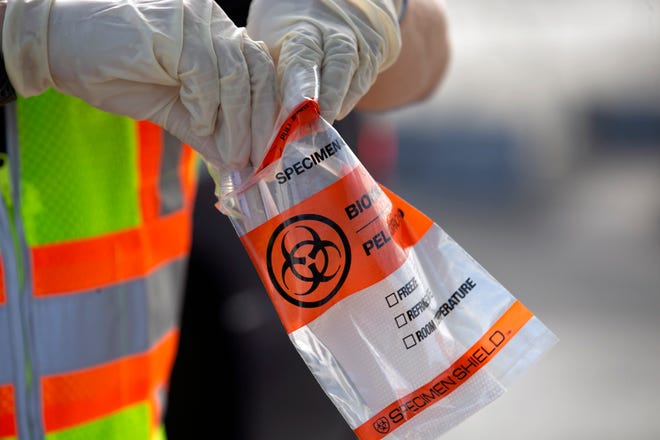
My entire household has COVID-19.
Those are tough words to type, because we’ve been so careful. I’ve read dozens of studies, talked to public health experts and written who knows how many columns about reducing the risk of transmission.
Yet somehow, someway, we all tested positive on Dec. 29.
It started the day before. I woke up with sinus pressure and congestion. I told my husband I should probably get a COVID-19 test. An hour later, he went from no symptoms to completely losing his sense of smell.
We immediately signed up the family for tests the next morning. I also contacted my mother-in-law, who had been over outside to visit, telling her to quarantine and get tested.
I got about three hours of sleep that night.
Fortunately, we've had mild cases
COVID-19 affects everyone differently. Even though my husband is diabetic, he’s been relatively fine. I was concerned about his blood sugar, but it’s been steady. None of us has had difficulty breathing. In fact, you’d never know my 5-year-old is sick.
We’ve been incredibly fortunate.
My husband and I have lost our senses of smell and taste, with headaches, runny noses and coughs. I have intermittent muscle soreness and fatigue.

But initially, what I felt more than anything was anger and shame. Public health experts have repeatedly admonished healthy, relatively young people like me to avoid COVID-19 — partly because we can spread it to others who are more likely to experience severe illness, but also because there’s no way to know how our bodies will react. We can still get seriously ill, and even mild cases can experience long-term health effects.
Still, I felt like we had failed
That’s why I haven’t eaten in a restaurant since March. I pick up almost everything I buy curbside. I wash my hands regularly for the full 20 seconds. If my family goes anywhere, it’s outside — and we wear masks and distance from others everywhere we go.
We’ve limited our regular contacts to my mother-in-law, and when we see her, it’s always outside, with masks on and at least six feet away.
How I overcame my hesitancy:America's health system betrays Black people like me. But I got the COVID vaccine anyway.
Our life isn’t completely without risk. My son is in school, though that has proven to be less of a risk than initially feared, especially for younger students. And my husband regularly sees customers for his job, though he always wears a mask and gloves and distances from them, sanitizing equipment between appointments.
I also know how quickly COVID-19 spreads within households once one person gets it, because few of us are masking and distancing from the seemingly healthy members of our own household.
Still, I had this overwhelming sense that we had failed.
Masks help. So does a lot of grace.
Because — be honest — that’s the judgment many (including me) make when we learn about someone testing positive for COVID-19. The assumption is that they let down their guard, that they went out without a mask or generally were living as if it were 2019.
That wasn’t us, but I envisioned how many readers would excoriate me for my supposed poor decisions. I hunkered down.
That was a mistake. I didn’t appreciate how much I would need friends’ support to see myself and others with a lot more grace. I’m not angry now.
Balancing the risks and rewards:As soon as my family pod expanded, we caught COVID-19: Here's why I don't regret it
I’m sure many also will ask what’s the point of staying home and wearing masks when you can still get sick?
Fair point. Mitigating risk isn’t the same as eliminating it — and, short of locking ourselves inside for months on end, which comes with its own damage, few of us can completely eliminate it.
Think of each mitigation strategy — wearing a mask, distancing, washing your hands — as another layer of protection. They aren’t foolproof, but they can certainly hedge your bets.
So, no. I don’t know where we got COVID-19, but I’m glad we took the precautions we did. My mother-in-law, who also is high risk, tested negative and has not developed symptoms, even though she was over when we were likely contagious but not yet symptomatic.
Perhaps with time, more insight will come. But for now, I keep reminding myself of something I wrote in March:
“Just do your best to not needlessly put yourself or others at risk and go to bed each night knowing that is all you can do.”
Joanna Allhands is a columnist at The Arizona Republic, where this column originally appeared. Follow her on Twitter: @joannaallhands.







